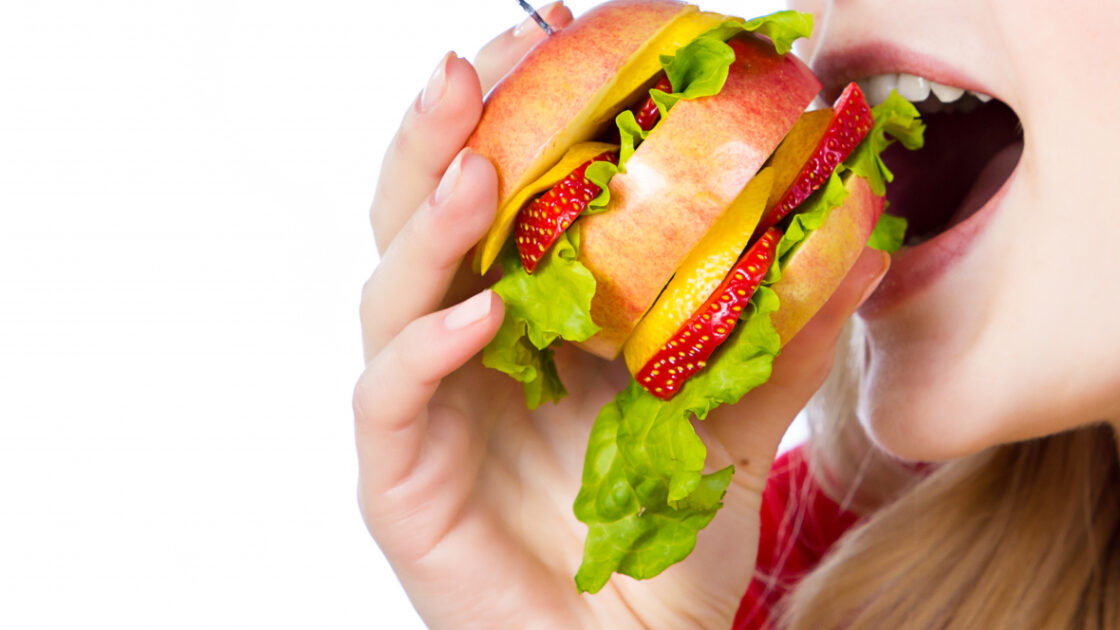New Book Explores a Sane Approach to Healthy Living

Stefanie Sacks, culinary nutritionist and author of “What the Fork Are You Eating?” makes one thing very clear: “Not being an idealist is okay.” In fact, during a Q&A hosted by the James Beard Foundation at the National Gourmet Institute earlier this month, she identifies herself as a “moderationist,” sharing what many audience members perceived as the most reasonable approach to healthy living they had ever witnessed.
Sacks has followed her own circuitous journey to healthy living. A mother of two, she explains that she was consistently ill as a child, until she got a summer job cooking at a health food store on Montauk, Long Island and being placed on a candida diet by a doctor, gradually going from five prescription medications to only one. Sacks today boasts a master’s degree in nutrition from Columbia, and seems less interested in discussing her own credentials than she does in a comprehensive dialogue about food.
“My goal in writing this book is to create an edible conversation,” she says. “One that is not based on fear.” Fear-mongering, Sacks explains, can lead to either end of extremism: fanatic change, or a tendency to completely ignore it. That dialogue is rooted in her collaborative approach with clients, who have ranged from the super-wealthy to more disadvantaged populations. The secret to genuine healthy living doesn’t discriminate, and carries what she calls the “common denominator.”
“Everyone wants to do better,” she says. “They just don’t know how.” That’s where her work comes in, and where change begins to take place.
While Sacks does incorporate into the book what she terms the “Top Rated Terminators,” which she deems to be “ten things[…]being done to food that are just not cool,” she also stresses that no single food is forbidden, to both herself or her sons. As she begins to discuss family, more of the audience’s questions turn to the subject of children. What about other kids’ birthday parties? What about the things those kids bring to school for lunch?
Emphasizing that there will always be edible environments in which one cannot exercise complete control, Sacks explains that she and her children both understand that “there’s the way we eat at home,” which isn’t necessarily adapted by everyone. For trips to the movies, she says, “all bets are off”; given the choice between bringing two types of candy from the health food store to the theatre, or buying one there, her boys typically go for the latter. If her own children want a multi-colored cake for their birthdays, she makes it herself using India Tree natural food coloring and, when they want hot dogs, she serves them Applegate ones.
The key, she says, is treating children like cognitive human beings, and giving them the power of information by explaining what certain ingredients are or can do, without trying to scare them. It is in that sentiment that she pinpoints her original thesis: We all need the fundamental knowledge about what we’re eating, but too many of us simply don’t have it, which is why, she says, so many parents think that something like Confetti Cake Pop-Tarts enriched with “essential vitamins and minerals” are a healthy breakfast.
That power of information goes both ways, Sacks says, pointing to a story of one client who completely forbid her young daughter from consuming more conventional items at her peers’ birthday parties. Withholding an awareness of moderation, or using knowledge dogmatically, she explains, is no better, and detracts from the realistic approach to healthy living that she maintains is far easier to accomplish than people tend to believe. “Small changes do make a difference,” she says, which is why part of her technique with clients is to help them make better choices in buying food, whether they shop at Whole Foods or Stop and Shop. She offers such simple tips as buying organic frozen berries, rather than their more expensive fresh counterparts. “Oh, my God,” her clients say. “I didn’t know it was so easy.”
“This book is meant for the mainstream,” she explains. “The silos have to come down.”
“What the Fork Are You Eating?” is available on Amazon.com for $12.66, and can also be purchased at some of Sacks’s upcoming appearances. Learn more at stefaniesacks.com.
Image: Shutterstock/PathDoc
Related on Organic Authority
23 Healthy Foods for Kids They Might Actually Adore
When Cheap Is Good: 5 Ways to Healthy Eating on A Budget

